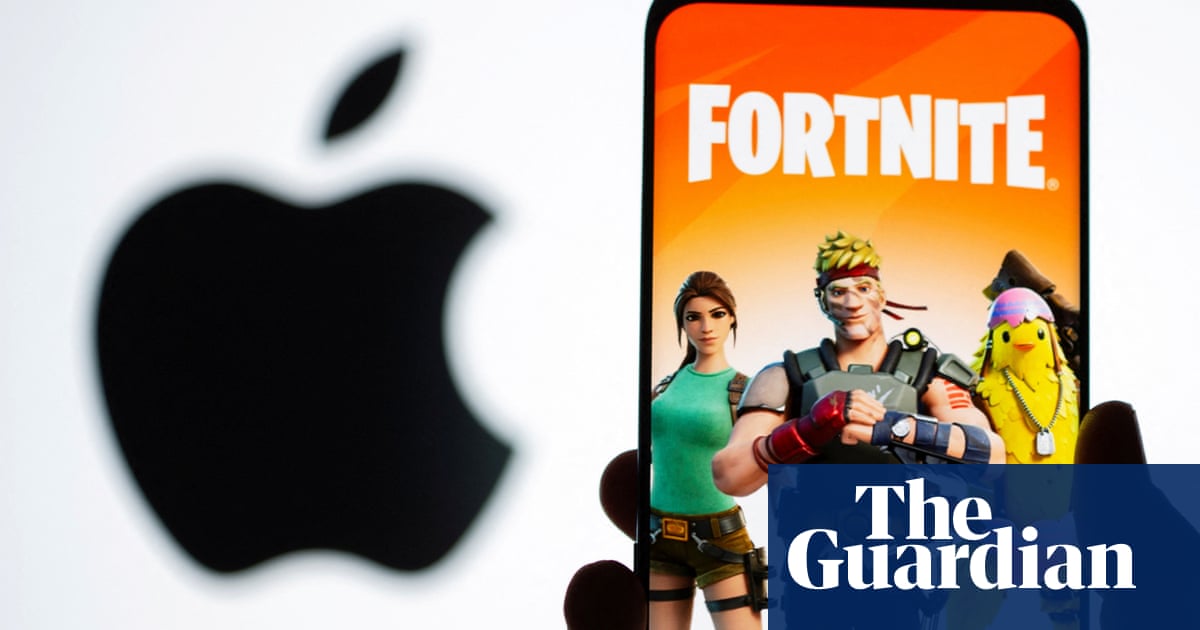Apple violated a United States court order that required the iPhone maker to allow greater competition for app downloads and payment methods in its lucrative App Store and will be referred to federal prosecutors, a federal judge in California ruled on Wednesday.
The US district judge Yvonne Gonzalez Rogers in Oakland said in an 80-page ruling that Apple failed to comply with her prior injunction order, which was imposed in an antitrust lawsuit brought byFortnitemaker Epic Games.
“Apple’s continued attempts to interfere with competition will not be tolerated,” Gonzalez Rogers said. She added: “This is an injunction, not a negotiation. There are no do-overs once a party willfully disregards a court order.“
Gonzalez Rogers referred Apple and one of its executives, Alex Roman, vice-president of finance, to federal prosecutors for a criminal contempt investigation into their conduct in the case.
Roman gave testimony about the steps Apple took to comply with her injunction that was “replete with misdirection and outright lies”, the judge wrote.
Apple and its lawyers did not immediately respond to requests for comment.
The Epic Games chief executive Tim Sweeney called the judge’s order a significant win for developers and consumers.
“It forces Apple to compete with other payment services rather than blocking them, and this is what we wanted all along,” Sweeney told reporters.
Sweeney said Epic Games would aim to bring Fortnite back to the Apple App Store next week. Apple in 2020 had pulled Epic’s account after the company let iPhone users navigate outside Apple’s ecosystem for better payment deals.
Epic accused Apple of stifling competition for app downloads and overcharging commissions for in-app purchases.
Gonzalez Rogers in 2021 found Apple violated a California competition law and ordered the company to allow developers more freedom to direct app users to other payment options. Apple failed last year to persuade the US supreme court to strike down the injunction.
Epic Games told the court in March 2024 that Apple was “blatantly” violating the court’s order, including by imposing a new 27% fee on app developers when Apple customers completed an app purchase outside the App Store. Apple charges developers a 30% commission fee for purchases within the App Store.
Apple also began displaying messages warning customers of the potential danger of external links in order to deter non-Apple payments, Epic Games alleged, calling Apple’s new system “commercially unusable”.
Apple has denied any wrongdoing. The company in a court filing on 7 March told Gonzalez Rogers it had undertaken “extensive efforts” to comply with the injunction “while preserving the fundamental features of Apple’s business model and safeguarding consumers”.
Gonzalez Rogers suggested at an earlier hearing that changes made by Apple to its App Store had no purpose “other than to stifle competition”.
In Wednesday’s ruling, Gonzalez Rogers said Apple is immediately barred from impeding developers’ ability to communicate with users, and the company must not levy its new commission on off-app purchases.
She said Apple cannot ask her to pause her ruling “given the repeated delays and severity of the conduct”. She took no view on whether a criminal case should be opened.
“It will be for the executive branch to decide whether Apple should be deprived of the fruits of its violation, in addition to any penalty geared to deter future misconduct,” the judge wrote.
